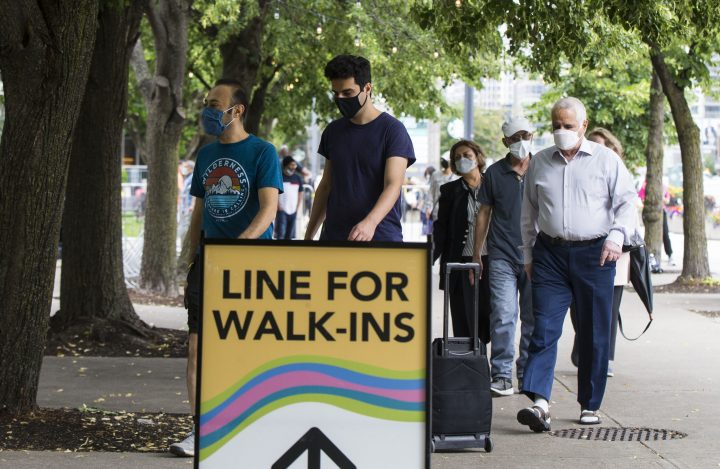Amid a possible fourth wave of COVID-19, Ontario data shows that unvaccinated adults aged 60-plus were 15 times more likely to be hospitalized due to the virus than those of the same age group who were fully vaccinated.

Ontario chief medical officer of health Dr. Kieran Moore revealed the data during a COVID-19 update Tuesday.
“We all know that the Delta strain — currently the dominant strain in Ontario — is more transmissible than the original COVID-19 strain and more likely to cause severe disease,” Moore said.
“This data shows that these vaccines are safe and very effective at preventing you from being hospitalized, admitted to the intensive care unit, or dying from this disease.”
Moore said the data is from the past month.
Moore also said that over the past month, those who were unvaccinated were eight times more likely to get infected with COVID-19 compared to those who were fully vaccinated.
He said breakthrough cases — referring to those who get infected 14 days after receiving their final dose of a COVID-19 vaccine — “seem to be very, very rare” in Ontario.
For those who are fully vaccinated and do get infected, Moore said their illness is less serious than for those who are unvaccinated.

Get weekly health news
“The symptoms will be milder, they’ll be shorter, they’ll resolve quicker, you’ll have typically less virus in the front of your nose and the ability to spread virus will be less,” he said.

His remarks came amid concerns of a possible fourth wave of COVID-19 in the province in the fall.
“It worries me and it’s my job to worry on behalf of all Ontarians,” Moore said.
Moore said experts do see the possibility of a rise in cases in September, potentially into October and November.
“But it’s our job as a community to mitigate that, to minimize its impact in particular on the hospital sector,” he said
“We don’t want people having to be admitted, having to go to our intensive care unit settings and we want our community to remain safe and that’s why we’re being prudent and cautious…
“We have another six months that could be difficult, but we’ll get through it together.”
Over the past week, COVID-19 cases have risen slightly, with the province reporting more than 200 cases for several days in a row after weeks of being below that level.
On Tuesday, 164 cases were reported, up from 129 on July 27.
As of 8 p.m. Monday, 19,591,917 COVID-19 vaccines had been administered in Ontario, marking an increase of 31,015 over 24 hours.
Of those aged 12-plus in the province, 80.5 per cent have received at least one vaccine dose and 69.8 per cent are fully vaccinated.
The province plans to lift more public health measures once 75 per cent of the eligible population is fully vaccinated, no public health unit has less than 70 per cent of their eligible population fully vaccinated, and other health indicators remain stable.
Ontario will exit the reopening roadmap after that, though masking is expected to remain for indoor public places.







Comments